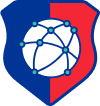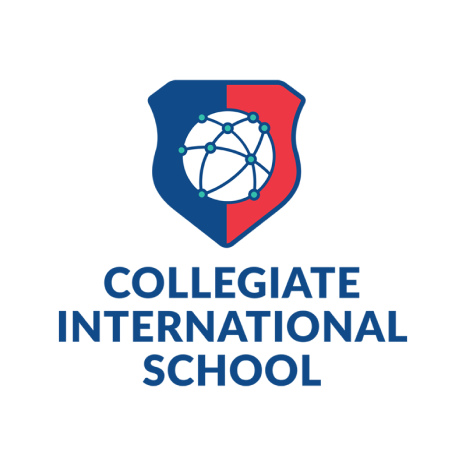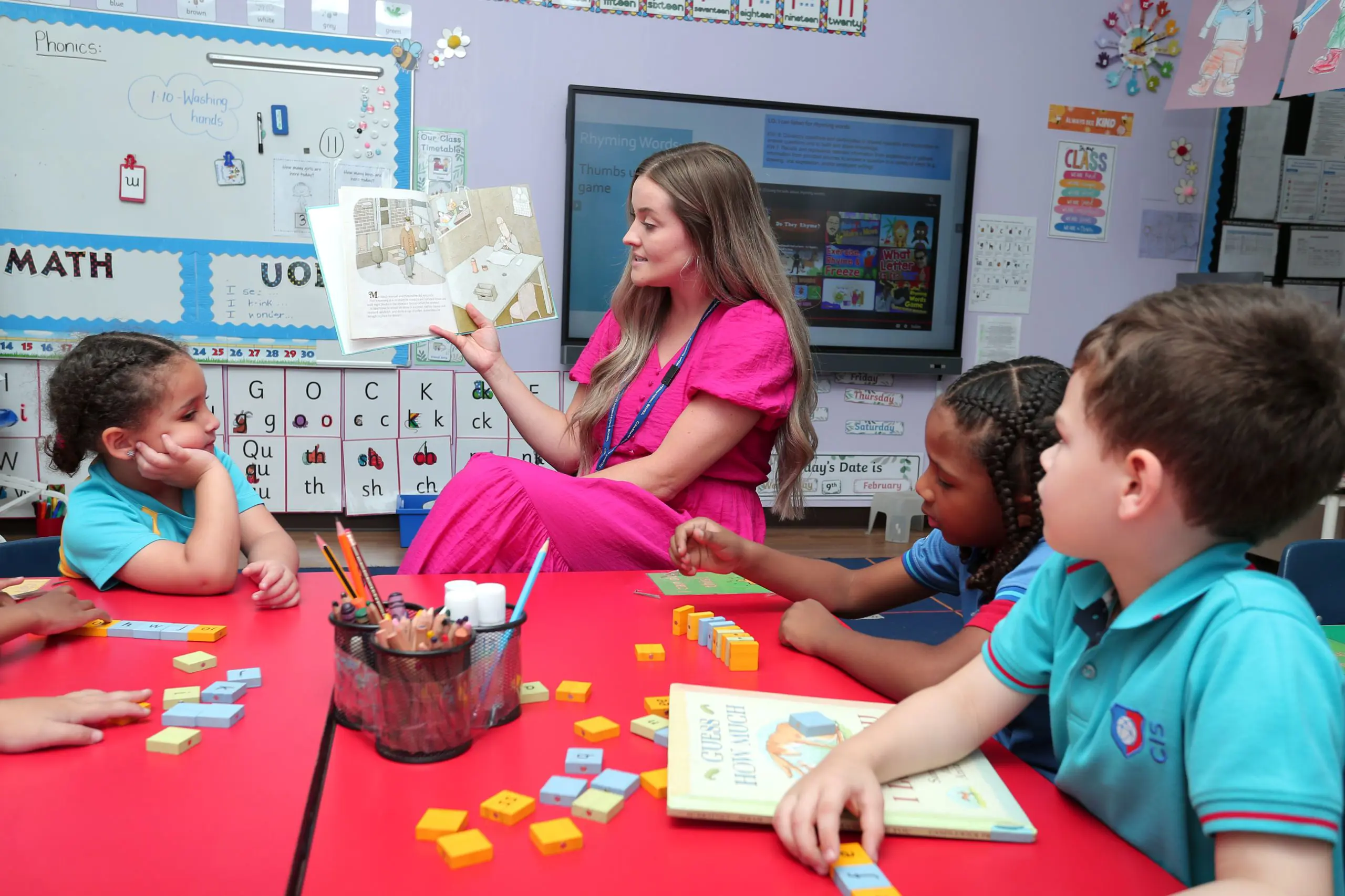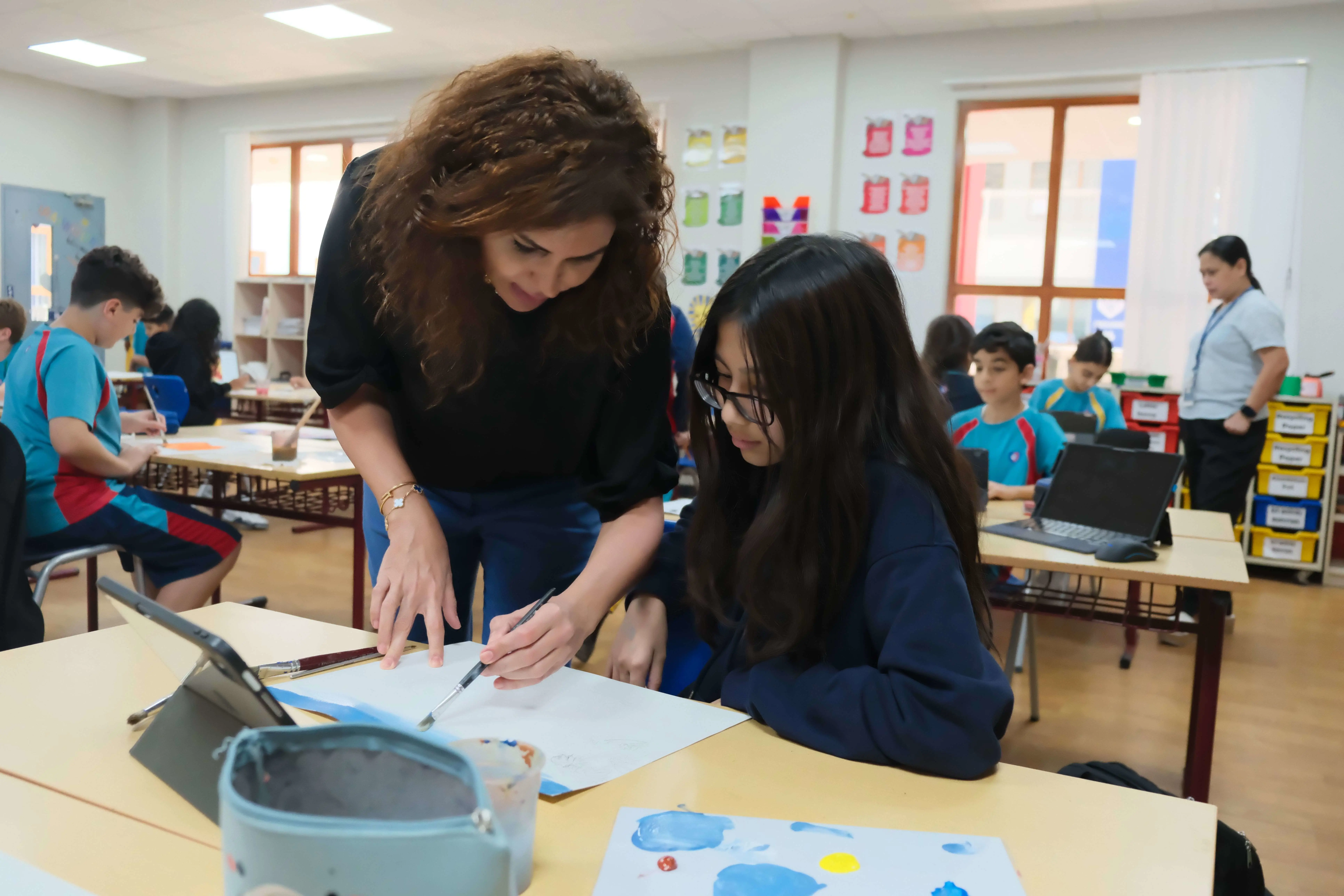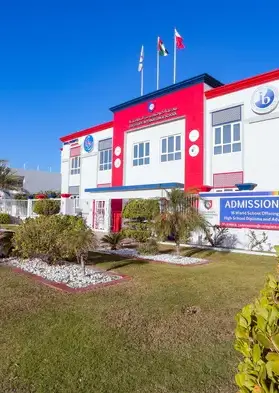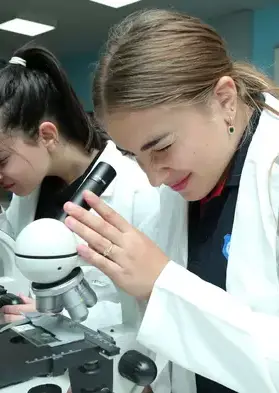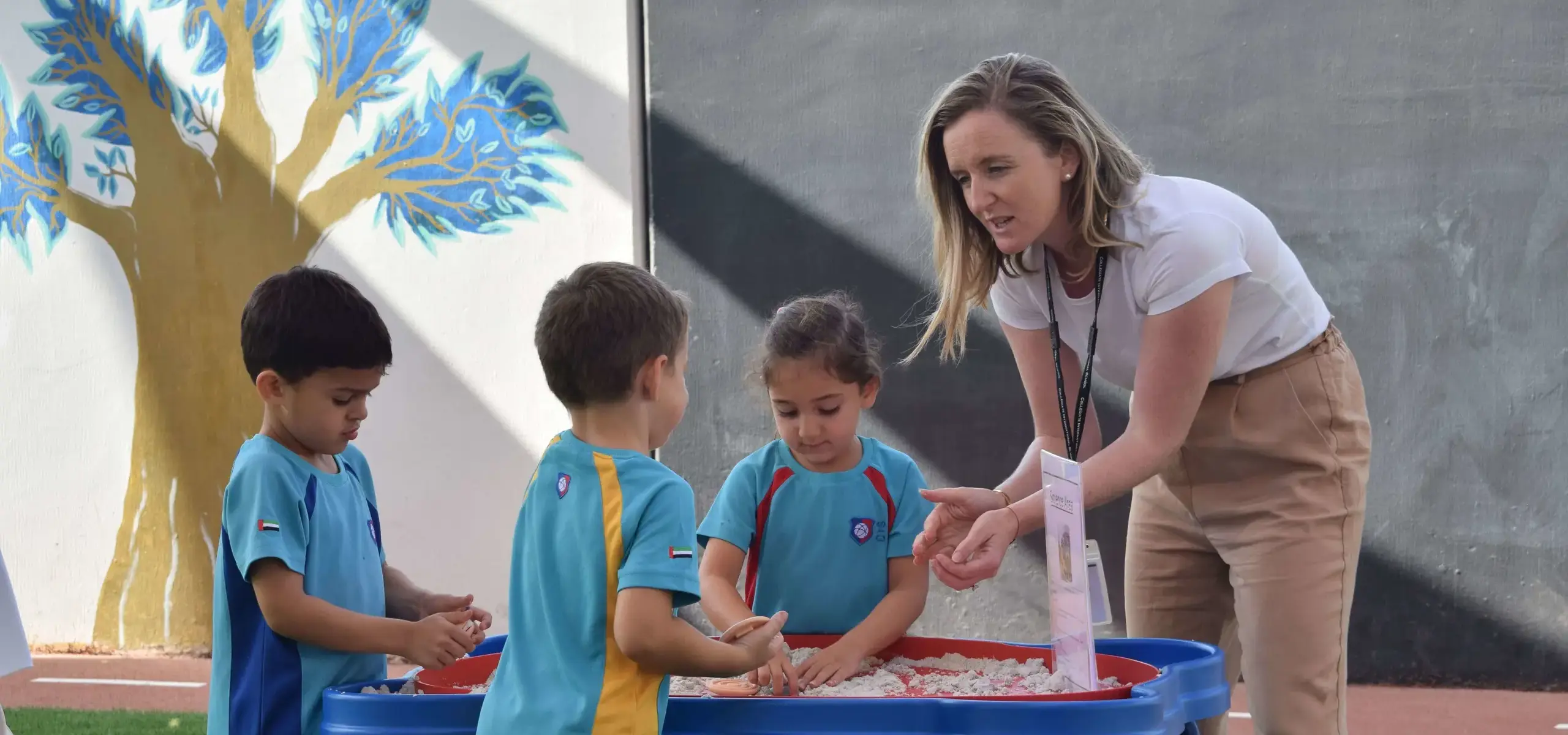Student Life at Collegiate International School – Middle School (Grades 6-8)
At Collegiate International School, student life in the Middle School is designed to support students in becoming independent, critical thinkers who are actively engaged in their learning and personal growth. Through a balanced and holistic approach, students experience a rigorous academic program enriched by opportunities for creativity, collaboration, leadership, and community engagement.
| IB Middle Years Programme |
|---|
| Middle School students engage in the IB Middle Years Programme, with content and skills aligned to the New York State Standards. This provides challenging and inquiry-based learning, developing a deep understanding of subject-specific knowledge while enhancing their critical thinking, research, and communication skills. The curriculum encourages students to make interdisciplinary connections, fostering intellectual curiosity and preparing them for the demands of higher education. |
| HOlistic Learning |
|---|
|
Beyond academics, students participate in physical education, creative expression, and extracurricular activities that contribute to their overall well-being. Whether through sports, the arts, or clubs, students are encouraged to explore their passions and develop well-rounded skill sets. CIS provides a varied learning environment where students utilize both digital tools and non-tech based approaches to enhance their learning. Collaborative projects, hands-on experiences, and real-world applications help students think critically, solve problems, and express their ideas in creative ways. Building positive relationships and fostering an inclusive school culture are central to the Middle School experience. Students learn to appreciate diverse perspectives, demonstrate empathy, and communicate effectively in a globalized world. Through group projects, discussions, and mentorship opportunities, they develop teamwork, leadership, and interpersonal skills. |
| student leadership |
|---|
| Middle School students are empowered to take ownership of their learning and personal development. They engage in student-led initiatives, clubs, and leadership opportunities, allowing them to develop responsibility, confidence, and a sense of agency. Whether participating in student government, leading service projects, or organizing school events, students make meaningful contributions to their school community. |
| SERVICE LEARNING |
|---|
| A key component of the Middle School experience is applying learning to real-world contexts. Students participate in service-learning projects, sustainability initiatives, and community outreach programs to develop a sense of social responsibility and actively contribute to their local and global communities. Through these experiences, they become ethical, globally-minded individuals who are committed to making a positive impact. |
| Policies and Resources |
|---|
|
|

